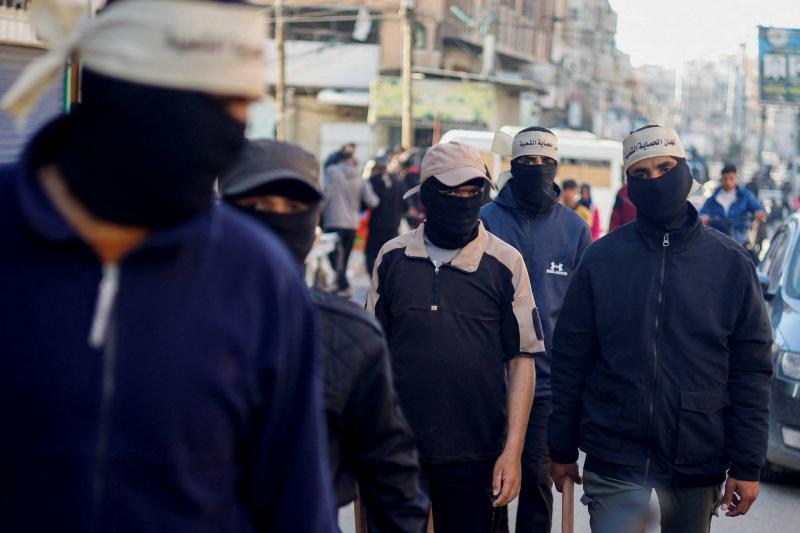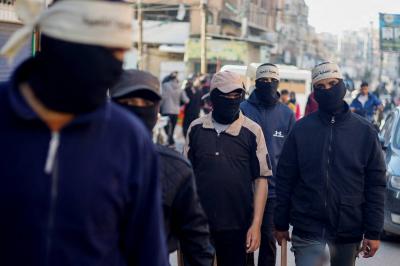As a group of masked men carrying batons entered a street in Rafah, attention quickly turned to them as they were seen as part of a public security force formed by armed factions in Gaza, after civil police have retreated, stating they have become targets of Israeli airstrikes. A group of nine masked men, with headbands reading "People's Protection Committees," patrolled a marketplace this week, after their first appearance in Rafah at the end of last month. One of them stated, "We are present in the streets to regulate them against all forms of evil present in the Palestinian street." He added, "We are a unit formed to protect citizens from rising prices and the situation we are experiencing in the country, through the Interior Ministry and Palestinian organizations in Gaza." Witnesses reported that "upon the first appearance of the guards in the markets, some of whom waved guns, dozens of youth gathered around them, whistling, applauding, and shouting 'Allahu Akbar' in support of them."
While some Rafah residents welcomed the emergence of the People's Protection Committees to address chaos and confront exploitative individuals amidst the war, others expressed concern about armed and masked men taking on police duties. A father of four told Reuters via phone from Rafah, "Perhaps if we had real police officers without masks, and known individuals, it would be more organized and more reassuring." None of the individuals interviewed by Reuters wished to disclose their full names. One person mentioned that "the guards fear being identified by Israel or tribal factions of exploiters who have confiscated their goods. Supporters of these groups worry that Israel may view them as Hamas supporters." They noted that those expressing concern about these armed men fear provoking the ire of the group or the factions that support it.
Hamas, which ignited the conflict with its attack on Israel on October 7, has controlled Gaza since 2007 and retains authority over civil police. Officials from the United Nations Relief and Works Agency (UNRWA) stated, "Municipal police in uniform in Gaza have refused to accompany aid convoys after several police officers were killed in Israeli airstrikes." The Israeli military did not respond immediately to a request for comment on whether it was targeting police.
The conflict has led to a severe shortage of all goods in Gaza, where Israel has only allowed humanitarian aid to enter the territory at a much slower rate than before the conflict. Prices have skyrocketed, causing anger among residents, almost all of whom have lost their homes and now live in tents or temporary shelters with few possessions other than the clothes they wear. One masked man said, “The Ministry of Economy gives us a price list for everyone to adhere to, big traders and small, and those who violate it we will regulate, notifying them the first time, second time, and if it happens a third time, we will confiscate their goods and sell them to citizens at the same price set by the ministry.”
Akram, a Rafah resident angered by rampant inflation, mentioned that he had to quit smoking as the price of a single cigarette equals that of an entire pack previously, stating, "They are responding to our request for protection against rising prices." Akram, a father of four, initially welcomed the idea of security groups but found them ineffective, targeting the wrong individuals. He added, "They need to focus on the Rafah border crossing where goods enter and press large traders to lower prices." Another resident of Rafah questioned, "Why can't the Ministry of Economy form groups to conduct these campaigns and inspect markets?"




